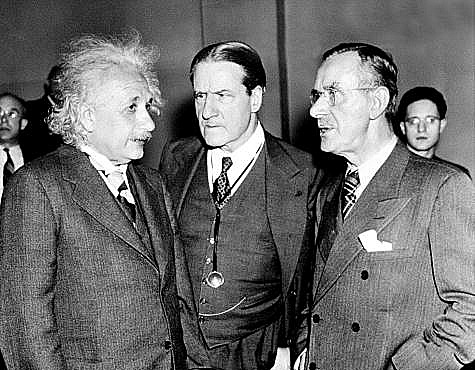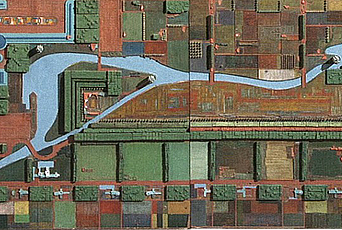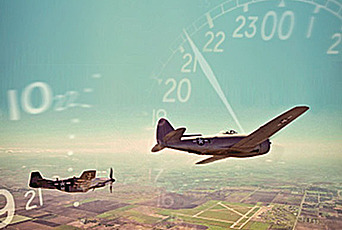Einstein’s Pacifism: A Conversation with Wolfram Wette

Wolfram Wette is one of Germany’s foremost military historians and Professor at the Albert-Ludwigs-Universität in Freiburg. He is the author or editor of over forty books, including The Wehrmacht: History, Myth, Reality (Harvard University Press, 2007), which was translated into five languages and radically reshaped the way historians think about the role of the German army in World War II. In 2015, the German government awarded Wette the Order of Merit of the Federal Republic of Germany, the only federal honor bestowed upon German citizens for their exceptional accomplishments. In July, Wette sat down with me to talk about Albert Einstein’s little-known activism in the German peace movement.
Most people know about Einstein as a scientist, but few outside of Germany know about his commitment to pacifism. Yes, most people know Albert Einstein for his theory of relativity of 1905, but they don’t know about his lifelong struggle for peace. But when you speak with some of the people who knew him, they will tell you that half of his life’s energy was dedicated to the struggle for peace and the other half to his atomic research. In 2005, there was an international congress in Berlin celebrating the centenary of the theory of relativity: “Thinking Beyond Einstein.” A good portion of the papers presented there focused on his role as a peace activist during the time of the Weimar Republic between 1918 and 1933.
So he became active in peace politics after World War I? No, he was involved in the peace movement before the First World War. Before 1914, Einstein was openly opposed to German militarism, racism, nationalism, and the use of violence in foreign policy. But he was in a minority. When the war started, about one hundred members of the German cultural elite made a public manifesto in support of German nationalism and patriotism. They defended the military’s actions. Only a very few scientists didn’t follow this line. Einstein, together with two other prominent scientists, tried to publish a counter-manifesto, denouncing the war. But none of the German newspapers would publish “unpatriotic” texts. So Einstein knew that he had a position that was not very popular with his colleagues.
Did his position become more popular after 1918? Yes, Germany after the war was a very divided society. Questions of war and peace were very much in the public debates. It cannot be compared to any other country. Hundreds of thousands of peace activists marched in the streets of Berlin to protest militarism and war, and Einstein rode in a car at the front of the demonstrations. He was the most famous activist in the country, especially after he won the Nobel Prize in 1921.
I know the communists and the social democrats were also opposed to war at this time. Was Einstein affiliated with any political party? Not only the communists and social democrats, but the left liberals and other parties as well. It was a mass movement in favor of diplomacy with the victorious powers of the First World War. They were in favor of non-violent conflict mediation. Their movement was called Nie wieder Krieg! (Never again war!). There were many parties involved, but Einstein himself was not a member of any political party. Peace was more important than party politics to Einstein.
But he abandoned his position after 1933? Yes, when Hitler came to power, Einstein saw the danger. He said, “I am a pacifist in principle, but I am not an absolute pacifist.” Many of his friends and colleagues in the peace movement were irritated with him for changing his position. But Einstein said that he hated the military and militarism as much as before, but that he could not close his eyes to the coming danger of Hitler.
Why did Einstein change his position so quickly? I think it is because he was reading the writings of a very prominent academic and peace activist named Friedrich Wilhelm Foerster. Foerster understood the German military mentality, the power of the kriegmenschen (war people) to set the political agenda in his country. He called their kind of thinking the schwertglauben.
Sword believers? Those who believe in the sword? Yes. And Foerster wrote in 1932 that there will be war guilt for the peace activists who close their eyes before reality. I think Einstein read this and understood that he had to act.
What did he do? Many things, but one interesting thing is that Einstein told the leaders of the victorious powers of World War I to occupy Germany in 1933. At that time, this would have been a legal action, and they could have stopped Hitler. Later in the war, Joseph Goebbels said that if he had been prime minister of France, he would have occupied Germany in 1933–34. Goebbels admitted that a French occupation could have prevented the Nazi mobilization. “But because they didn’t,” Goebbels said, “we were able to prepare for war.” Albert Einstein made this proposal very early, but the Western leaders ignored him. Then there was the letter to Franklin Delano Roosevelt. Einstein wrote to the American president and told him to start working on the atomic bomb. Einstein feared that the Germans would get this technology first, and he wanted the Americans to have the bomb to use against the Germans. He never expected that this bomb would be used against Japan or any other country. In 1945, after the destruction of Hiroshima and Nagasaki, Einstein believed that his letter to Roosevelt had been a mistake.
Then he went on to oppose the threat of nuclear war. Toward the end of his life when he was living in the United States, he dedicated many efforts to preventing the possibility of a third world war. He wanted a world government that would eliminate nationalism and the need for military aggression. He was absolutely opposed to nuclear weapons of any kind, and one of the final acts of his life was to sign what became known as the Einstein-Russell manifesto, calling for human beings to set aside their political differences in order to ensure world peace. Eleven prominent scientists signed this manifesto, and they told world leaders to: “Remember your humanity, and forget the rest.”
How did you become interested in Einstein’s work as a pacifist? I’m one of the founders of the field of historical peace research in Germany, a community of about two hundred historians working on issues of peace. We have two book series in this field, and it is an area of active scholarly interest here. This started in the 1970s, when Germany had a new president, Gustav Heinemann, who wanted to develop more research on peace movements in Germany. This was at the time of Willy Brandt’s Ostpolitik, when Germans were more interested in non-military diplomacy and normalization with Eastern Germany. So my interest in Albert Einstein’s pacifism is part of my broader interest in the peace movements in Germany and in Europe in the nineteenth and twentieth centuries.
Before our interview, I asked several of my colleagues at the university if they knew that Einstein was a pacifist, and very few had any idea about it, especially those from outside of Germany. In the United States, where I am from, even educated people know very little about his peace activism. Why do you think that is? Well, the United States since the Second World War is primarily a military country. There hasn’t been a year since 1945 when your country was not embroiled in some military conflict. In the United States, it is normal to solve conflicts with military power. In Germany, this is no longer normal.


